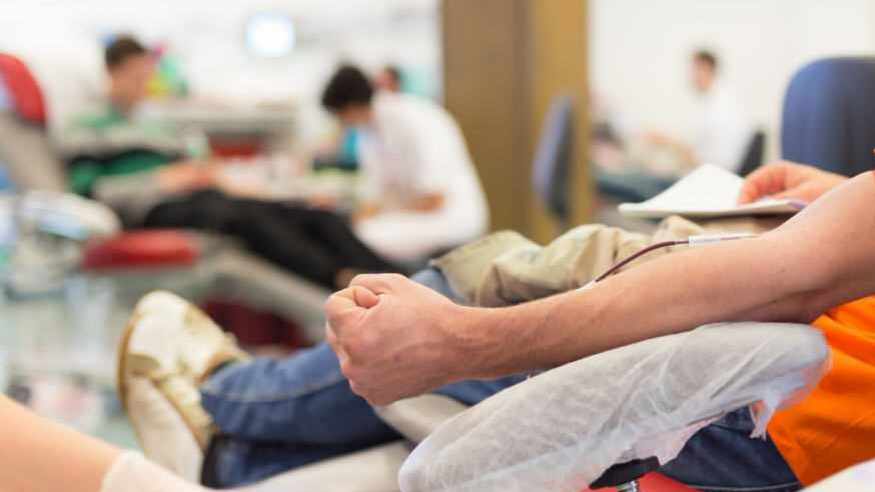-
U.S. to Screen All Blood Donations for Zika
 New recommendations that all U.S. donated blood be tested for Zika virus have been issued by the U.S. Food and Drug Administration (FDA). The plan begins immediately in Florida, moves to southern-tier and border states within the next month, then the rest of the country has until November to comply.
New recommendations that all U.S. donated blood be tested for Zika virus have been issued by the U.S. Food and Drug Administration (FDA). The plan begins immediately in Florida, moves to southern-tier and border states within the next month, then the rest of the country has until November to comply.
Mayo Clinic Blood Donor Program medical director Dr. Justin Kreuter, says "Protecting the US blood supply from risks such as the Zika virus is our culture in the blood donor program community. As the epidemiology of the Zika virus becomes increasingly complex — now that we have vector-borne as well as sexual transmission in the US — our current strategy of travel-based deferral will at some point become ineffective. This move to a testing and pathogen reduction-based strategy is how we will be able to maintain the safety of our blood supply, despite the increasing prevalence in our communities. Some may consider this move premature — to be testing our country’s entire blood supply within the next 12 weeks — but this is how we will stay ahead of this rapidly evolving threat."
How will the recommendations affect blood donor programs?
"Blood donation programs have a lot of controls built into our processes for collecting and manufacturing donated blood into transfusable blood products. We will be devoting the majority of our resources over the next 12 weeks reconfiguring our processes and implementing this new molecular test for Zika virus," explains Dr. Kreuter.
Dr. Kreuter urges blood donors who are able to donate to visit a blood donation center soon. "Because of the Zika virus concern, there is a greater need for those who can give blood to do so," says Dr. Kreuter. "The U.S. blood supply has been critically low throughout the summer, and anytime the pool of eligible donors shrinks (even if for good reason like protecting patients from the Zika virus), it means that we are even more dependent on the healthy individual to donate their blood and an hour of their time."
"The blood supply is absolutely critical to patients - patients who are in car accidents, patients who may need life-saving surgery, patients who may need life-saving chemotherapy," says Dr. Kreuter. "Without the blood supply, we cannot support or care for these patients and there is no substitute. Our communities need you."
Related posts:
- Zika: What You Need to Know About the CDC Travel Advisory (Aug. 3, 2016)
- Pediatricians Central to Zika Patient Care (July 25, 2016)
- Non-travel Zika Case Spurs Concerns: Tips for Protection (July 22, 2016)
- Mayo Clinic Minute: Zika-endemic Areas (April 22, 2016)
- Zika Virus: Four Myths and What You Need to Know (April 18, 2016)
- Zika Virus News: Birth Defect Link Confirmed (April 14, 2016)
- Mayo Clinic Minute: Protect Yourself From Zika Virus (April 8, 2016)
- Zika Virus: CDC Guidelines and Pregnancy (April 1, 2016)
- Should Women Wait to Get Pregnant If Traveling to Zika-endemic Area? (March 15, 2016)
- Developing a Vaccine to Protect Against Zika Virus (March 8, 2016)
- Mayo Clinic Begins Development of Zika Virus Vaccine (March 7, 2016)
- Further Investigation Needed on Zika Link to Guillain-Barré Syndrome (March 3, 2016)
- Zika Virus and Microcephaly: Need for More Research (Feb. 22, 2016)
- Guillain-Barré Syndrome and Zika: Is There a Connection? (Feb. 17, 2016)
- Zika Virus Impacts Blood Donations (Feb. 5, 2016)
- Transmission of Zika Virus and Dangers of Mosquitoes (Feb. 4, 2016)
- WHO Says Microcephaly-Zika Virus Link International Emergency (Feb. 1, 2016)
- Mayo Clinic Minute: Zika Virus (Jan. 21, 2016)
Related Articles







